To others, the publishing industry may seem mature, as if growing into its old age, but I find it more accurate to compare it to an adolescent because of all the changes it’s going through. It doesn’t know who it is or what it’s about yet, causing others to wonder about it. What is an indie author? Who are the big 5 publishers? Are there other traditional publishers?
There’s a lot to cover when it comes to publishing options, but in this post I’ll be primarily focusing on what an indie author is and the details surrounding this particular publishing identity.
Whether you’re trying to figure out which avenue to publish down or are simply trying to understand the lingo in the publishing space, I’ve got you covered.
Table of Contents
What is an indie author?
An indie author is a term used to describe someone who publishes independently of the big 5 publishing houses, including self-published authors. Basically, if they’re not published through Penguin/Random House, Hachette Book Group, Harper Collins, Simon and Schuster, or Macmillan, they are an indie author.
Even if they still have an agent and still got published through a traditional publishing house, they’re considered indie.
Though I do have to note that the term “indie author” is increasingly used to describe self-published authors, but it does include a larger population that just them.
Indie vs Traditional Authors
As mentioned above, if you’re wondering: what is an indie author? And especially what the differences between them are, it’s actually pretty simple.
Indie Authors:
- self-published authors
- authors published with a small press outside of the big 5 publishing houses
Traditional Authors:
- published under one of the big 5 publishing houses or their imprints
Note: Publishing “imprints” are sub-houses under the larger umbrella of a traditional publishing house, usually specializing in certain genres. For example, Tor Publishing Group is an imprint of Macmillan Publishers that primarily publishes science-fiction and fantasy fiction. Any authors published with Tor would be considered traditional authors.
What are independent publishers?
Independent publishers are still publishing houses, but can be referred to as “small presses” as well. They’re unconnected from the big 5 publishing houses and stand on their own.
The method an author would get published through these independent publishers is the same as traditional publishing in most cases; they would query an agent, the agent would sell their manuscript, and the manuscript would be edited, produced, and distributed through the small press.
However, some indie publishers do accept unsolicited manuscripts. You’ll just have to research the website and see what their guidelines are.
Can indie books be in bookstores?
Yes! A big misconception for people who don’t know what an indie author is is that they think those books won’t make it in bookstores. The truth is that they do! It just might take a bit more work for a self-published author.
Here’s an example of self-published author Matt Emmorey signing his books at his local Barnes and Noble after asking the manager if they would stock his book.
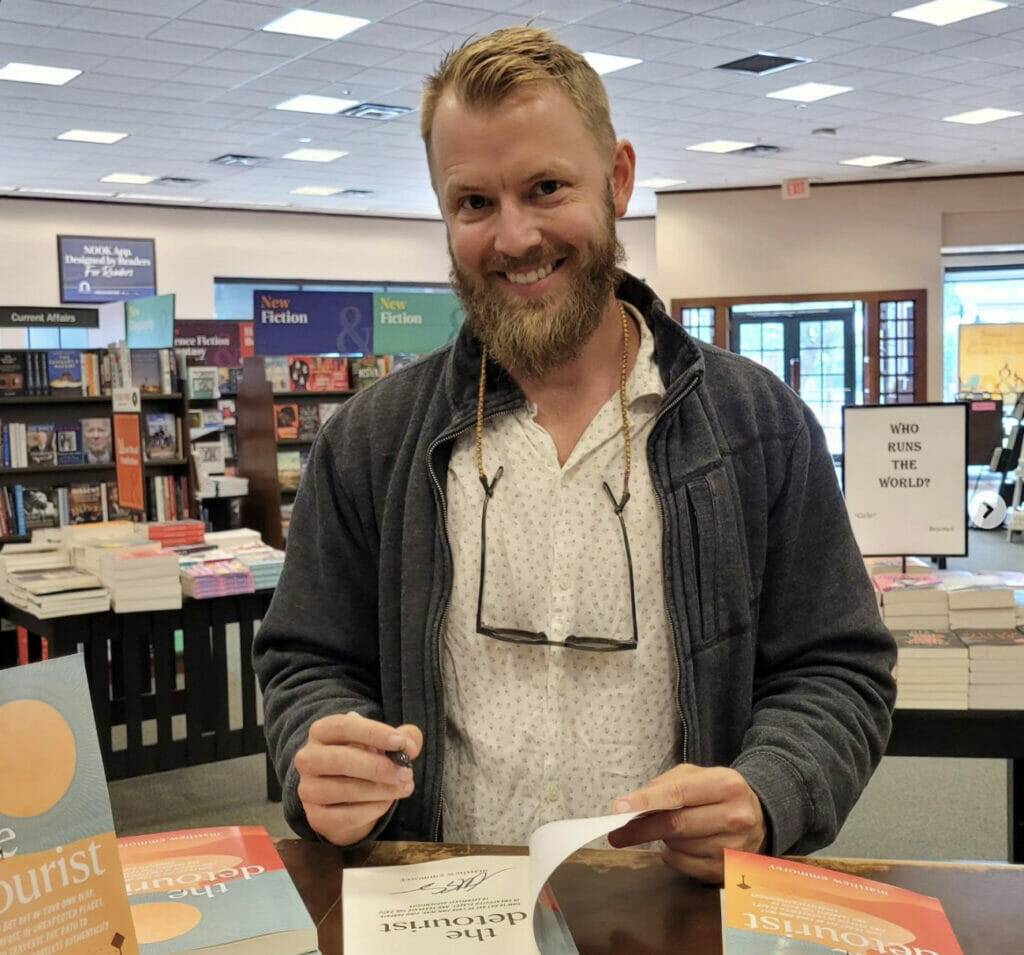
The method of getting your book into bookstores as a self-published author is a bit more manual, in that you have to call and request they stock it.
However, other indie authors that publish through certain independent publishing houses might have better luck if that small press has more distribution options. Make sure to ask!
How do you tell if an author is an indie author?
Supporting indie authors is important. Whether you realize it or not, the large majority of the books you read (and therefore, the movies or TV shows created from those stories) are decided upon by 5 entities. That’s not a lot of diversity.
If you want to get more diverse stories from various sources, supporting indie authors is important! But that means knowing how to tell if an author is an indie author.
There are a couple methods.
1. When looking online, check the item details:
A lot of us get our books online—Amazon, to be specific. If you scroll beneath the book details and Amazon A+ content if they have it, there are methods to see who the “publisher” is for certain books in a section labeled “Product Details”.
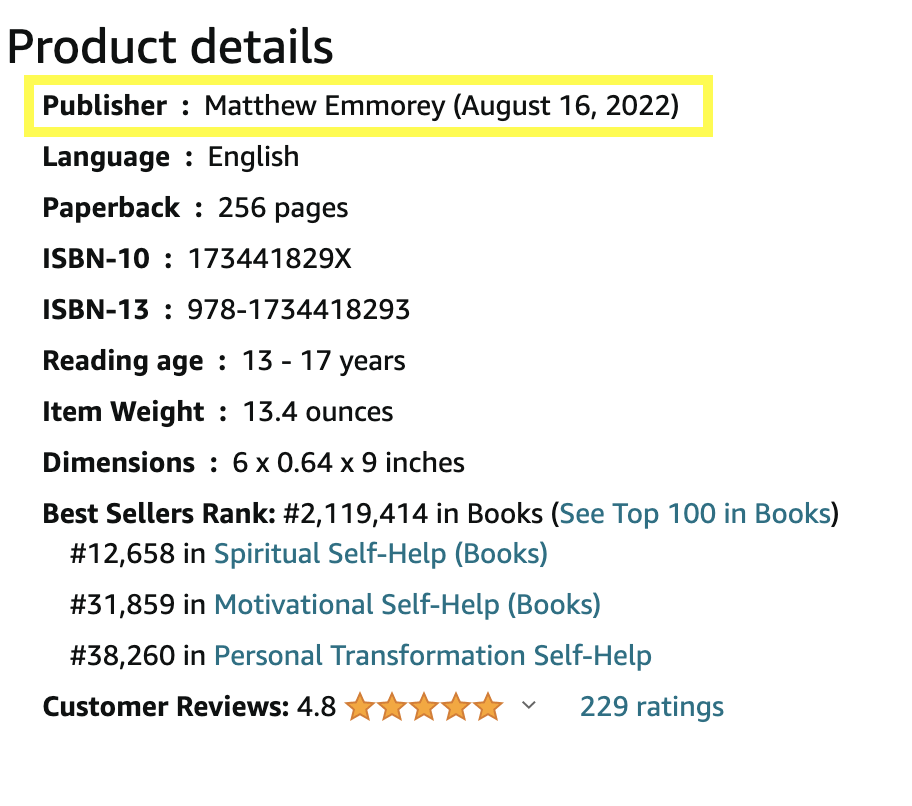
Here you can see that the Publisher is listed first and it’s the same name as the author. In this case, the author is not only an indie author, but also a self-published author because he’s not under any other press or publishing house.
Now, you could see something else in this place if the indie author is published under a small press. Here’s an example of product details for a book published with a small press called Future Tense Books.
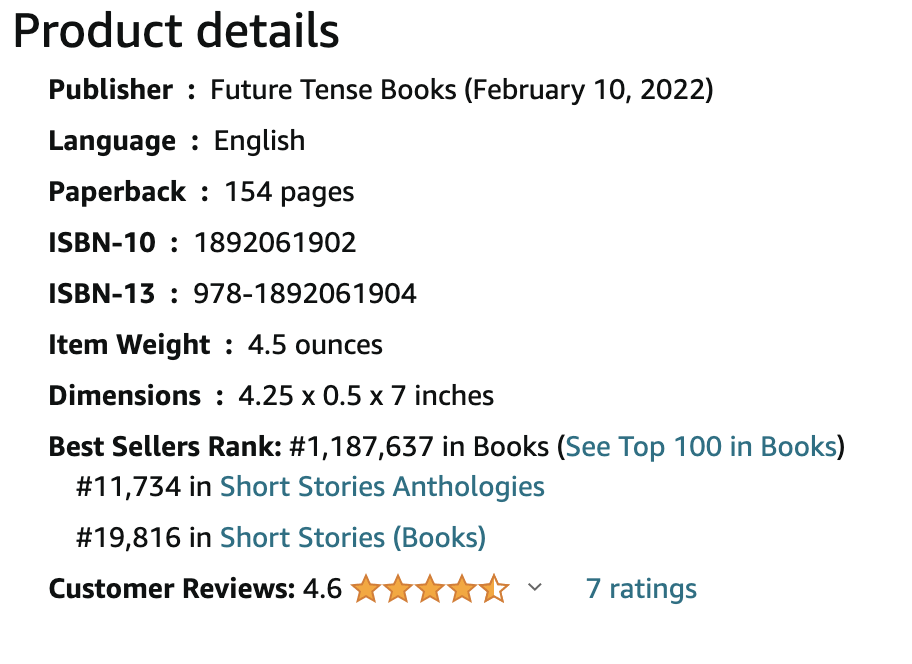
The trick here is that you’ll have to know which presses and its imprints are connected to the big 5 publishing houses. A quick Google search of, “is future tense books an imprint” can tell you. If it is part of the top 5, you’ll see websites from those houses pop up in the results.
2. In a bookstore, check the publishing details or book spine:
A physical book can actually be easier to determine whether it’s indie published or traditionally published.
All you have to do is look at the spine! You’ll see symbols and names like “Simon & Schuster” or “Penguin” or “Tor” on the bottom of the spines, like in the example below.
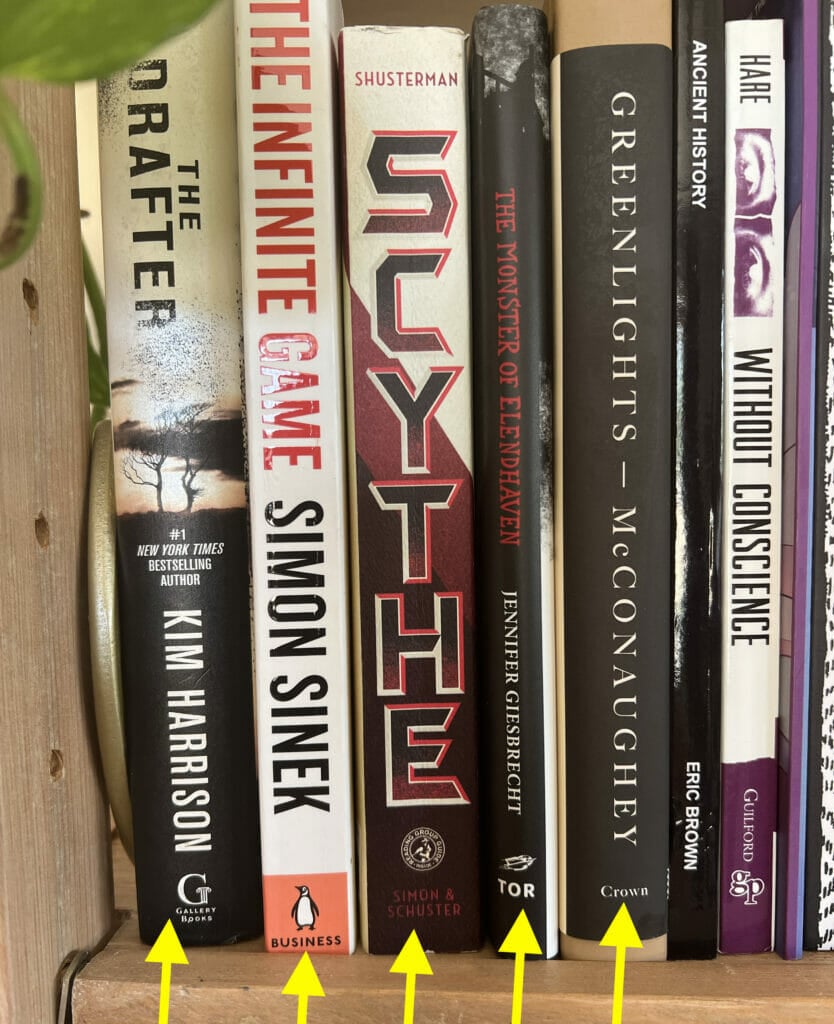
If you don’t see any sort of symbol or publisher on the spine, open the book and look at the copyright page. The copyright page will indicate who owns the copyright, and you can follow the above method to Google it if you’re not sure if it’s an imprint, or know that it’s self-published if it only has the author’s name.
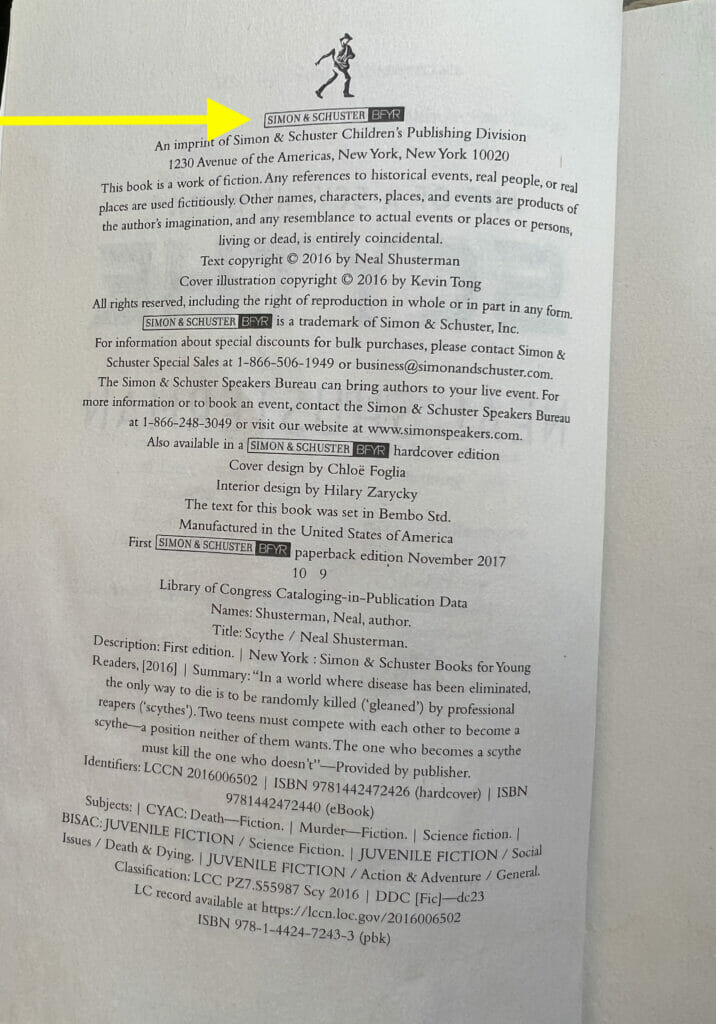
How do indie authors make money?
Indie authors make money the same way other authors do: through book sales. Whether or not an indie author makes any sort of advance depends on if the independent publishing press offers any. Some do, in small amounts. Others make royalties-only deals with authors.
How much do indie authors make per book?
This completely depends. There is no straight answer for how much indie authors can make per book. Whether or not the indie author is self-published or published through a small press will also alter their royalty per book.
Either way, it’s likely that an indie author will make more per book sale than traditionally published authors.
If you want to learn more about the breakdown of royalty incomes between self-published authors, indie press authors, and traditionally published authors, this post has more detail: How Much Do Authors Make? Salaries [With Examples]
Should you become an indie author?
It depends on your goals, mostly. If you want sole creative control, to make every cent of what you earn, and to manage all aspects of your book production, then being an indie author can sound appealing!
Most authors want to be traditionally published with a big 5 publishing house, but it’s a goal based on notoriety rather than a goal of making an income. While it sounds nice to have everything taken care of, where you can just focus on writing your book and not the cover, formatting, or uploading, being a traditional author isn’t necessary to have that luxury.
Companies like selfpublishing.com do the book production (cover, formatting, uploading, and even publishing on Amazon through your own account) while also allowing you to keep 100% of your royalties. Of course, you pay for this service, so there is an upfront cost to be had to still “self” publish.
It ultimately depends on what you want. This post can help you clarify which option is best for you: Publishing Options: What to Consider & How to Choose
Can an author be both traditional and an indie author?
Yes! Some authors get traditionally published book deals with the big 5 publishing houses, but if they want to write a book the house doesn’t want to buy, they can then self-publish the book on their own. However, keep in mind that there are some contracts with publishing houses that could forbid this, so always have a good lawyer and agent help you with those details.
So what is an indie author? It’s just an author who has decided to be more independent in this growing publishing industry, where the big 5 are the parents and the rest of us are the adolescents just trying to make it on our own.